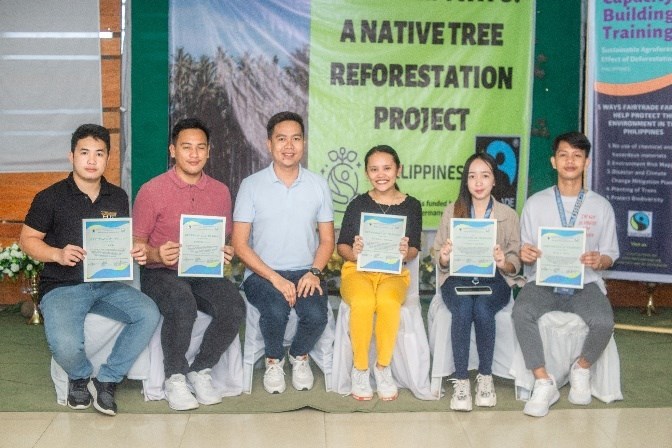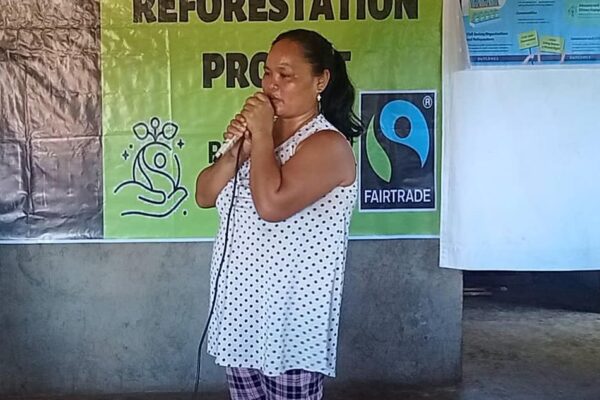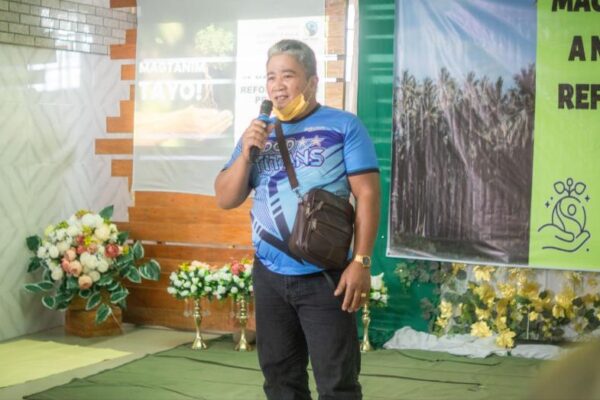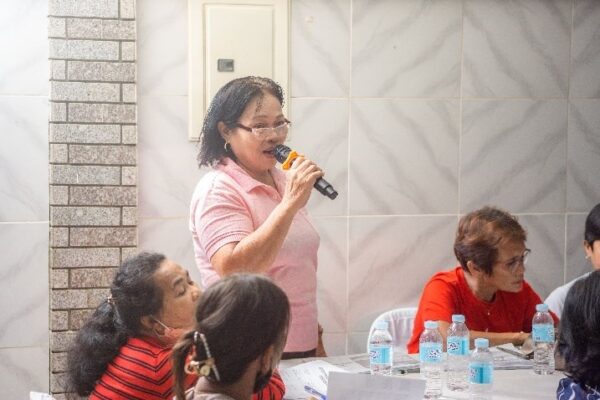In 2010, the Philippines boasted 13.2 million hectares of natural forest that extends over 62% of its total land area. However, by 2020, it had suffered a loss of 46.8 thousand hectares, resulting in emissions of approximately 27.4 million tonnes of CO2. The persisting issue of illegal logging continues to endanger the remaining forested areas. Presently, the country tackles with numerous significant challenges and the repercussions of climate change, which can be directly linked to deforestation. Soil erosion has caused food insecurity due to the depletion of nutrients and reduced crop yields. In several provinces, particularly in the Mindanao region where numerous Fairtrade coconut farmers reside, at least 50% of the topsoil has been lost, and approximately 70% of croplands face vulnerability to erosion. With an average of 20 typhoons sweeping through the country each year and its predominantly upland topography featuring slopes of 18% or greater, approximately 52% of the total land area is susceptible to soil erosion, mass wasting, and landslides in the absence of forest cover.

To tackle these challenges, Fairtrade NAPP through the implementation of the Fairtrade Germany bilateral funding organized Magtanim Tayo: A Native Tree Reforestation Project. This project targeted Fairtrade coconut farming communities in Mindanao Island which promoted the benefits of a sustainable agroforestry system for hosting biodiversity of native species of plants and wildlife in the Philippines. This project is phase 1 of Capacity-building training to promote the benefits of sustainable agroforestry in coconut farming communities. This was a 7-month-long project which benefited 232 producers from 5 Producer organizations.
The Philippines boasts a rich variety of native trees, with 3,600 identified species. Remarkably, 67% of these trees are endemic, meaning they are found exclusively within the country’s borders. Sadly, the existence of many of these native trees are being threatened by deforestation, as well as the introduction of invasive species and mono-crop plantations. Additionally, native trees have been excessively harvested and exported to other nations. These native trees can be classified into three categories: endemic, indigenous, and exotic/non-native. Hence, the objectives of this project are as follows-
- The primary objective of this engagement is to develop and implement a capacity-building training program that promotes the benefits of sustainable agroforestry systems in coconut farming communities while addressing the detrimental effects of deforestation.
- The capacity-building program aims to familiarize participants with the principles and advantages of incorporating agroforestry systems into agricultural practices, ultimately fostering sustainability in their farming businesses.

The capacity-building training program focused on promoting the benefits of sustainable agroforestry in coconut farming communities has yielded positive output-
- A total of 232 producers, consisting of 144 females and 88 males, successfully participated in the capacity-building training program that aimed at promoting the advantages of sustainable agroforestry in coconut farming communities.
- To support the implementation of these practices, a significant effort was made to distribute native tree seedlings. A total of 1,000 native tree seedlings were distributed to all 5 small-scale producer organizations. These seedlings were then planted by the 232 trained producers on their respective farms.
It is crucial to generate and disseminate knowledge regarding deforestation and its impact on the ecosystem. This knowledge gained will enable farmers to understand the consequences of deforestation on biodiversity and equip them with the necessary tools to prevent and mitigate its effects. This understanding of the agroforestry system will enable farmers to make informed decisions about the most suitable agroforestry practices for their specific contexts. To actively contribute to ecosystem restoration, it is essential to promote and implement on-site considerations when nurturing and cultivating native trees. This involves applying appropriate techniques and methods that foster the healthy growth and development of these trees.
By actively participating in tree planting initiatives, farmers can contribute to the restoration of degraded areas and enhance the overall biodiversity and ecological balance of their surroundings. Native trees play a vital role in recovering forest habitats for threatened species. They protect watersheds, secure livelihoods, and preserve biodiversity. In the Philippines, exotic trees, chosen for fast growth, disrupt the ecosystem. They alter soil composition, hinder plant growth, and fail to support native wildlife, especially endangered species reliant on native trees for nesting and shelter. Prioritizing native trees in agroforestry ensures habitat restoration, safeguards water resources, and supports local communities.
To achieve long-term environmental sustainability, it is vital for farmers to comprehend and apply the underlying principles and concepts. This will help them make informed choices and adopt practices that minimize negative impacts on the environment. In this way, farmers can contribute to ecological balance, sustainable livelihoods, and the preservation of endangered species in the Philippines.
Testimonials:
“This is the only time that we knew that it is not good to cut down trees just for the expansion of agricultural land. We need to plant more trees to prevent soil erosion and landslide.” – Mr Gerry Godoy, Davnor Fairtrade Coco Farmers Association based in Santa Cruz, Davao Del Sur.
“We have become one of the contributors of global warming and climate change because maybe we are going to be involved in cutting down trees if we are not educated of this program. Thank you very much for this help. Through this we can contribute to our community while educating our fellow members.” – Bervinie Subban, Davnor Fairtrade Coco Farmers Association based in Tagum, Davao Del Norte.
“I am very thankful for Magtanim Tayo Program. Before, we just plant here and there without the measurement. Now I know that there is a right way. Planting trees is a great help to our environment. Flooding occurs almost every week due to the impact of mining that has cleared the land. Today, we are the ones who are struggling now from floods and landslides. Let’s plant trees to help our environment.” – a participant from Tical Tribal Multipurpose Cooperative based in Malita, Davao Occidental.
“When we plant a tree, our grandchildren will hope to still see it in future. Let’s encourage our youths to give importance to trees and environment sustainability. What we see regarding the number of trees today, it will be same or increase even more in future generations. I would like to thank Fairtrade for the project as well as our visitors who spend their time here.” – a participant from Fairtrade Farmers Coconut Multipurpose Cooperative based in Padada, Davao Del Sur.







